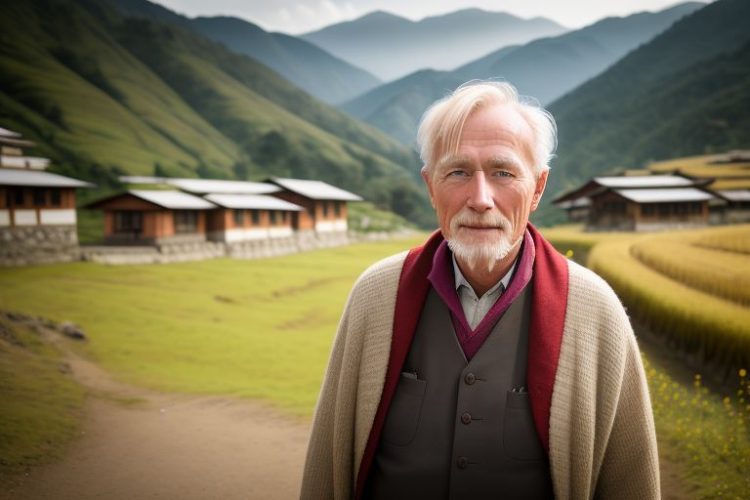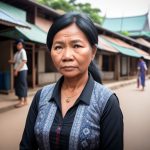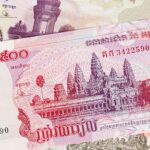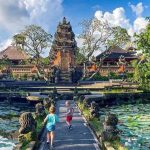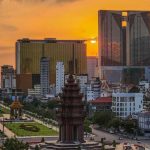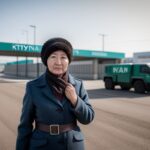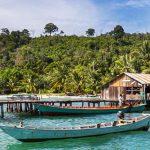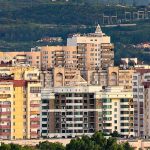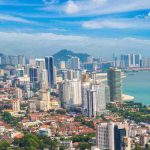Introduction
Bhutan is often referred to as the “Land of the Thunder Dragon.” It has recently attracted many visitors because of its resplendent landscapes and rich culture, together with its somewhat quirky method of calculating happiness and welfare. When considering retirement options abroad, Bhutan may seem like something out of fantasy for British pensioners. However, if you’re considering this rather drastic step, you’ll want to know the practicalities of retiring to this Himalayan kingdom. We’ll answer the question, “Can Brits retire to Bhutan?” in this article by showing its feasibility with respect to visa requirements, cost of living, healthcare, and lifestyle, among other things.
Visa Requirements for Retirement in Bhutan
The first challenge that any British pensioners looking to retire in Bhutan are likely to face is the process of obtaining a visa. Bhutan has a particularly unique attitude towards tourism and residence within the country, including rather a strict visa system. This nation basically allows people to have limited residence, with long-term residence having certain conditions attached.
There does not exist any sort of retirement visa for British citizens looking to retire to Bhutan. Instead, this person would have to apply for a long-term visa or residence permit, which very few are able to get. The Bhutanese government commonly favors visa applications from tourists and businesspeople against retirees. Thus, it is important to contact the Bhutan Embassy/Consulate for updated information and inquiries into possibilities of long-term stay or residency.
Cost of Living in Bhutan
One of the reasons that might make the idea of retiring in Bhutan so attractive is its comparatively low cost of living against most Western countries. Although not very cheap, the cost of living in Bhutan can still be quite affordable, especially compared to major UK cities. For example, a person will pay less for everyday basic needs such as accommodation, utilities, and food in cities like Thimphu or Paro.
Accommodation ranges from traditional Bhutanese houses to modern apartments. Though the cost of living is lower, items and services available will be limited as compared to a more developed country. Therefore, British pensioners should seriously think and plan their budget within these limits. Further, the prices of imported items and various luxuries may be higher because of the isolated location of Bhutan.
Healthcare in Bhutan
Health is one of the serious factors in the process of retirement, and Bhutan offers both public and private facilities that provide some healthcare services. The public facilities offer very basic health facilities, whereas most expatriates and retirees prefer to use the private sector since it offers good health facilities with quality services.
There are major cities, like Thimphu, where at least a good standard of care can be found in hospitals and clinics. More specialized treatments or emergencies may call for travel to the neighboring countries or even returning to their country of origin, which retirees might have to make provisions for. For such an eventuality, British pensioners are advised to invest in comprehensive international health insurance that shall cover all their medical expenses. The insurance shall facilitate quality treatment and alleviate a lot of stress.
Lifestyle and Culture
One of the most interesting, perhaps most fascinating, reasons to retire in Bhutan is its rich cultural heritage and serene way of life. This country has a philosophy of Gross National Happiness, one that places people at the forefront of development over economic growth. It is this very approach that creates serenity and harmony within the environment, therefore making Bhutan an attractive retirement destination for those retirees seeking a peaceful life.
The Bhutanese culture is inseparably linked with Buddhism; thus, there exists a strong feeling of community and tradition all over this tiny country that retirees find. Colorful festivals, local traditional ceremonies, and dynamic markets allow immersion in Bhutanese culture. In addition to that, the magnificent nature of Bhutan, especially the mighty Himalayas, provides endless outdoor activities and opportunities for exploration.
Language and Integration
The official language is Dzongkha; however, English is highly spoken, more so in towns and amongst the younger population. Basic knowledge of some Dzongkha phases could be useful to a British pensioner, especially when interacting with locals in rural areas.
Thus, integration into Bhutanese society may take some time since the cultural norms and way of living are pretty different from what the retirees may have been accustomed to. However, the people in Bhutan are very friendly and hospitable toward foreigners, and this helps the process of settling. They can engage in activities offered by local communities, participate in learning how to be Bhutanese or take part in different cultural events, making retirement feel just like home.
Safety and Security
One of the major concerns for a retirement destination is safety, and Bhutan by all means is a very safe country. The crime rate in the country is low, and the Bhutanese government strongly emphasizes public order and security.
This will also include adhering to the local laws and regulations to ensure that the British pensioner does not have any problems. The Bhutanese culture is strongly based on respect and courtesy, hence as a retiree, one has to remain aware of the customs and traditions that are part of this etiquette. Being informed about local conditions and following the safety guidelines outlined provides for a safe environment and tranquil living.
Climate and Weather Considerations
Bhutan’s climate varies by region and altitude. Still, in general, it has a temperate climate with sharply distinct seasons. The southern parts have a subtropical climate with higher temperatures and more humidity, while the northern regions have temperatures ranging from cold to very cold with heavy snowfall during the winter months in the Himalayas.
British pensioners should be prepared for the climatic conditions of the region chosen within Bhutan to live in. The northern areas offer a refreshingly cool climate for those who love cooler climates; however, one must prepare themselves for the high altitude and varying weather patterns that can make day-to-day living and health very challenging.
Accessibility and Travel
The country is relatively isolated in terms of its international connectivity. Paro Airport is the principal or central international airport that connects Bhutan to major cities in India, Thailand, and other neighboring countries with a few flight connections. Therefore, traveling to and from Bhutan can be quite problematically time-consuming.
British pensioners are advised to meticulously organize their traveling arrangements and be well-prepared for some delays or logistic inconveniences that may arise. This is also important regarding the country’s strategic geographical location, offering close proximity to a number of other regions for interested visitors, which may involve extra planning and coordination efforts in making trips to these places.
Conclusion
While retirement in Bhutan offers British pensioners the chance to enjoy rich cultural heritage, serenity, and a peaceful environment, it comes with several challenges. Bhutan is among the most preferred places to retire due to its unique cultural heritage and serene environment, with a focus on well-being. On the downside, there is no specific retirement visa for this country, full health insurance coverage is required, and it is rather remotely located.
It would be possible for British pensioners to make an informed decision about retirement in Bhutan, having researched the visa options, health needs, cultural conditions, and climatic conditions. With careful planning and a prepared mind, Bhutan offers a very singular and possibly rewarding retirement experience.
Related posts:

Ray Brocklesby, the site owner, is a Brit who now lives in the Philippines. He is retired and lives with his wife Weng, Daughter Kristelle, nephews, Harvey and Boknoy, and mother-in-law. Ray also has a son and daughter living in the UK, and a son in New Zealand.

